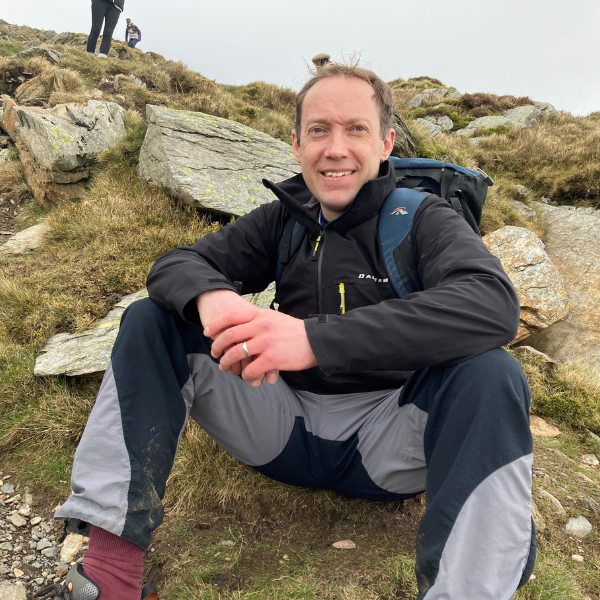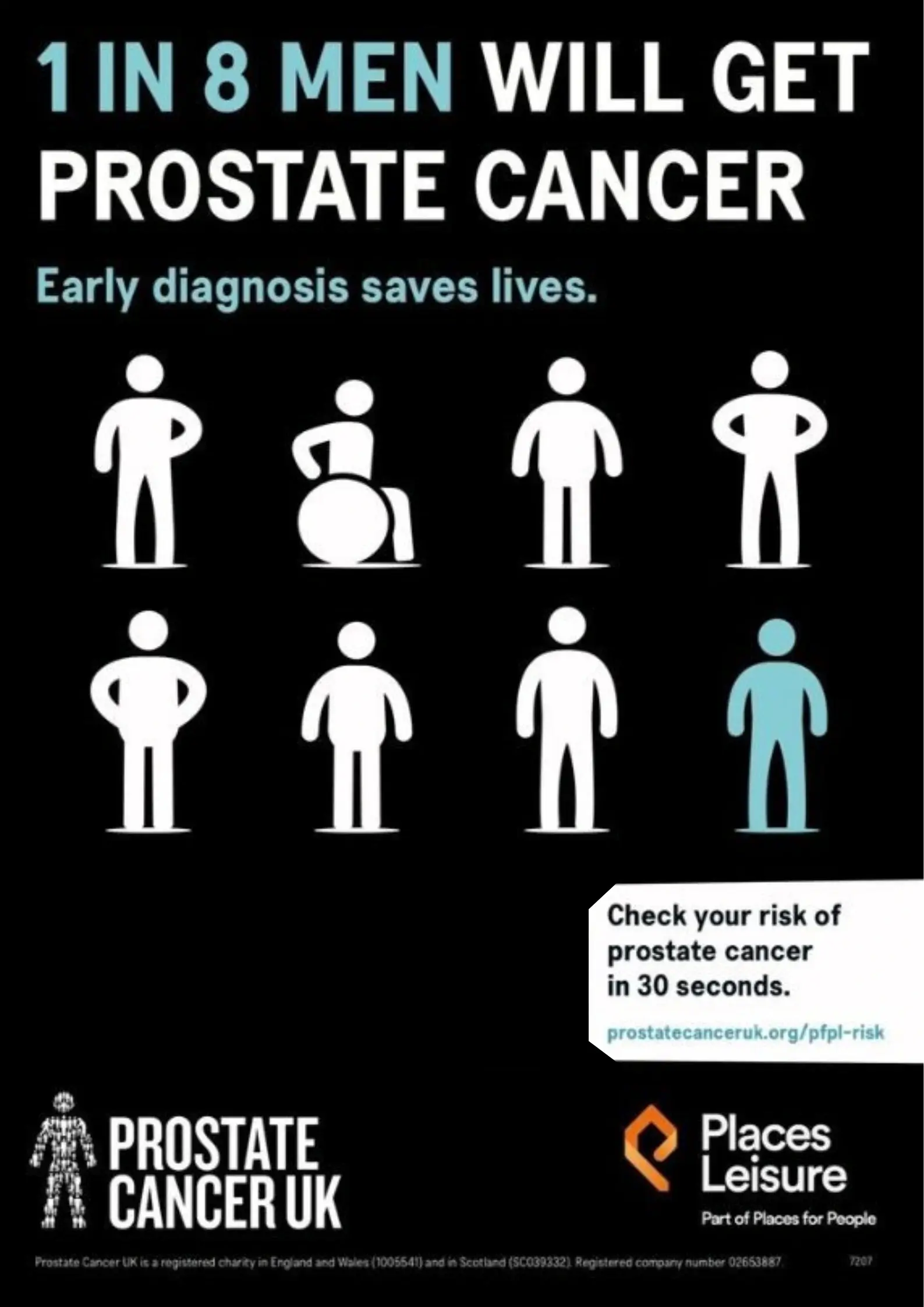Prostate Cancer Awareness Month
Our Healthy Communities Director shares his family’s experience
March marks Prostate Cancer Awareness Month, a time to help people learn more about prostate cancer and show support for those who have been affected by it.
Prostate cancer is something that is particularly close to Chris Payne, our Healthy Communities Director, and his family.
His personal experience began when his grandfather was diagnosed. His condition was being treated with hormone therapy, but this was only partially successful as Chris’ grandfather then went on to develop bowel cancer.
“It was only towards the end of his life that we learnt as a family my grandfather had been battling prostate cancer…what struck me about this time was my grandfather’s unwillingness to discuss his condition with his family.” Chris said.
Some people find it hard to discuss diagnoses of any serious disease, such as cancer, and may try to avoid the topic. It’s important to note that even if you don’t know how to talk about cancer, there is support out there from GPs and Specialist Nurses.
Prostate cancer is the most common cancer in men, and more than 52,000 men are diagnosed with prostate cancer every year on average, making it even more vital to raise greater awareness and get the conversation going.
After the loss of his grandfather, Chris’ father was unfortunately then diagnosed with prostate cancer in 2017. “I remember the phone call well and despite the stoic nature of my father’s diagnosis summary, I could tell he was anxious about what the future held.” Chris explained.
Chris’ mother convinced his father to visit his GP after he had been needing to go to the toilet more frequently - a common sign of a prostate problem. Results showed that he had an enlarged prostate and a subsequent blood test confirmed he had a slightly raised PSA (prostate-specific antigen) level, an indicator of prostate cancer.
Fortunately, Chris’ wife is a haematology nurse and administers chemotherapy, so she was able to spend time with his father explaining the pros and cons of each option.
Chris’ father opted for surgery and his experience in hospital could not have been better. He was well looked after by staff and his family were well-informed of his progress. Thankfully, the surgery went well, and no follow up chemotherapy was required.
The transparency of his father’s experience with cancer helped both with understanding what he was going through along with increasing Chris’ awareness of the risks of developing prostate cancer. While we don’t know exactly what causes prostate cancer, we know there are some things that make people more likely to get it, such as a family history of prostate cancer.

“My father’s experience, and knowing my grandfather also developed prostate cancer, has created a mindset within myself that there is a strong likelihood I will develop prostate cancer at some point in my life. I know this risk increases with age and this is why I took the decision to get checked for the first-time last year.” Chris said.
His father is a testament to how an early diagnosis can lead to a successful outcome. The earlier that prostate cancer is caught, the more likely it is to be cured!
Knowing the signs and symptoms of prostate cancer can help it be detected earlier. Across our centres you’ll find posters from Prostate Cancer UK, one of our newest partners, illustrating these and how to check for them. The posters also include a QR code which leads to the charity’s online risk checker, which takes just 30 seconds to complete. You can view the risk checker here.
If you're a trans woman or non-binary, your risk may be different, which is why Prostate Cancer UK also has specific information for trans and non-binary people.
After having close experiences with prostate cancer, Chris has picked up a wealth of advice to share with anyone who is facing the disease. “If you are experiencing symptoms or know someone who is, go to the GP…it is a simple examination and a quick blood test, but it could save your life. And remember you are not alone with over 50,000 new cases a year. If you are worried and feel comfortable in doing so, talk about it. The more people are aware of the condition and how easy it is to check, the more people we can treat early.”
